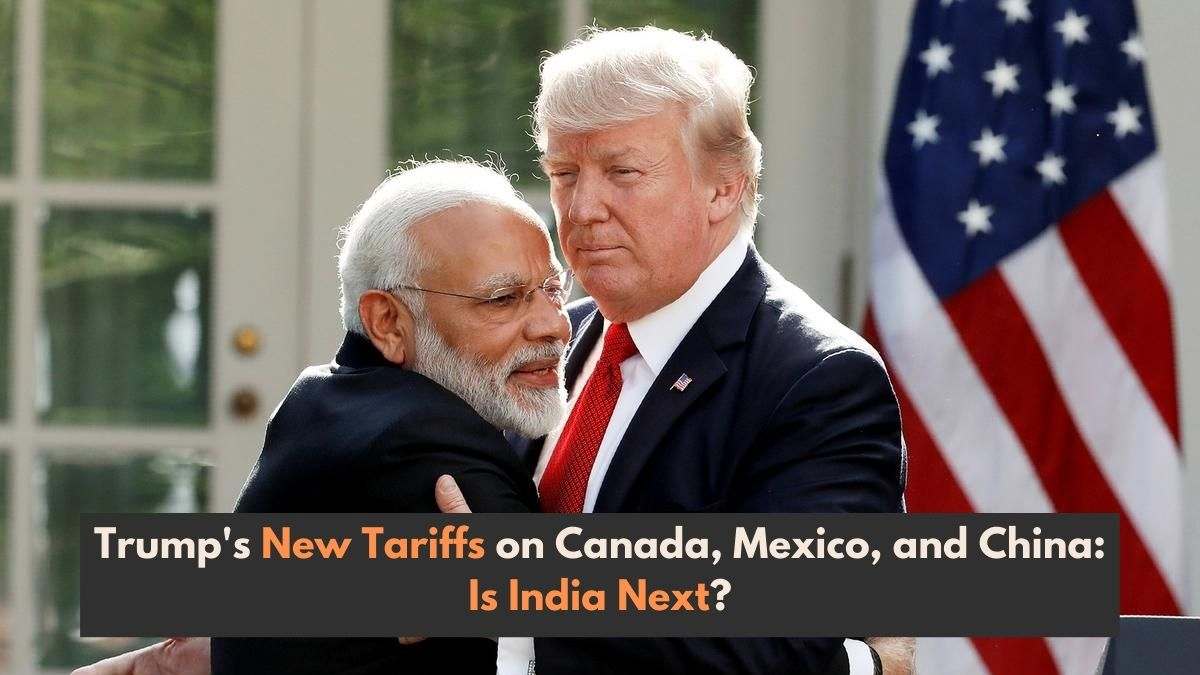Reciprocal Tariffs And India: A Sector-Specific Risk Assessment

Table of Contents
Impact of Reciprocal Tariffs on the Indian Agricultural Sector
The agricultural sector, a cornerstone of the Indian economy, is particularly vulnerable to reciprocal tariffs. Many Indian agricultural exports face potential retaliatory measures from trading partners.
Vulnerability of Key Agricultural Exports
Several key agricultural exports are highly susceptible to reciprocal tariffs.
- Rice: Major importers like China and the EU could impose tariffs, potentially leading to a significant reduction in exports and impacting the livelihoods of millions of Indian farmers. Estimated export losses could reach billions of rupees annually depending on the tariff level.
- Spices: India's dominance in spice exports makes it vulnerable to retaliatory measures from countries like the US and the Middle East. Tariffs could severely impact the profitability of spice farmers and exporters.
- Cotton: Fluctuations in international cotton prices, combined with potential tariffs, could cripple India's cotton textile industry, leading to job losses and reduced export revenues.
Government support mechanisms, including subsidies and export promotion schemes, exist, but their effectiveness in mitigating the impact of significant tariff increases remains questionable. Further investment in diversification and value addition is crucial.
Implications for Food Security and Domestic Prices
Reduced agricultural exports due to reciprocal tariffs can lead to several challenges:
- Price Volatility: A surplus of agricultural produce in the domestic market could lead to lower prices for farmers, impacting their income. Conversely, reduced imports in response to retaliatory measures could lead to price hikes.
- Inflationary Pressures: Increased food prices can fuel broader inflation, impacting the cost of living for ordinary citizens.
- Potential Social Unrest: Significant price increases in essential food commodities can trigger social unrest and instability.
The Indian government's ability to effectively mitigate these risks through buffer stock management, price controls, and targeted interventions is critical, requiring proactive planning and substantial resources.
Reciprocal Tariffs and the Indian Manufacturing Sector
The Indian manufacturing sector, while exhibiting growth in certain areas, is also vulnerable to reciprocal tariffs. Its dependence on global value chains and exports makes it susceptible to disruptions.
Risk Assessment for Key Manufacturing Industries
Several key manufacturing sectors face significant risks from reciprocal tariffs:
- Textiles: The textile industry, a major employment generator, is particularly vulnerable due to its reliance on exports and global supply chains. Increased tariffs could significantly reduce competitiveness and lead to job losses.
- Pharmaceuticals: While India is a major pharmaceutical exporter, reciprocal tariffs could affect the export of generic drugs and other pharmaceutical products.
- Automobiles: The automotive sector, facing global competition, could be negatively impacted by increased tariffs on exported vehicles and components.
Potential job losses across these sectors need to be carefully considered, necessitating proactive strategies to maintain competitiveness.
The Role of Global Value Chains (GVCs)
India's integration into global value chains (GVCs) makes it vulnerable to disruptions caused by reciprocal tariffs.
- Supply Chain Disruptions: Tariffs can disrupt supply chains, increasing production costs and impacting timely delivery of goods.
- Reduced FDI Inflows: Uncertainty caused by reciprocal tariffs can deter foreign direct investment (FDI), hampering growth in the manufacturing sector.
- Impact on Overall Economic Growth: Disruptions to GVCs can negatively impact overall economic growth and employment.
Mitigating these risks requires diversification of trade partners, strengthening domestic industries, and promoting domestic value addition to reduce reliance on specific export markets.
The Services Sector and Reciprocal Tariffs: A Unique Challenge
The services sector, a significant contributor to India's economy, faces a unique set of challenges due to reciprocal tariffs. While tariffs traditionally focus on goods, retaliatory measures can target services.
Vulnerability of Indian IT and Business Process Outsourcing (BPO)
The Indian IT and BPO sector's substantial reliance on global clients makes it vulnerable to reciprocal measures.
- Limitations on Market Access: Retaliatory tariffs or restrictions could limit access to key markets, impacting revenue and growth.
- Impact on Employment: Reduced business could lead to job losses in this large and crucial sector.
- Government Response Capacity: The government's ability to counter retaliatory measures against the service sector requires careful consideration and proactive policymaking.
Increased competition from other service providers in countries less affected by reciprocal tariffs poses an additional challenge.
Opportunities and Challenges for Other Service Sectors
Other service sectors also face potential repercussions:
- Tourism: Travel restrictions or reduced tourist spending due to international tensions could impact the tourism sector significantly.
- Healthcare: Increased tariffs on medical equipment or restrictions on healthcare professionals could affect healthcare investments and accessibility.
Mitigating the negative impacts and leveraging opportunities in the service sector requires strategic diversification, focusing on niche markets, and strengthening domestic demand.
Conclusion
This sector-specific risk assessment highlights the diverse and potentially severe impacts of reciprocal tariffs on the Indian economy. The agricultural, manufacturing, and services sectors all face significant challenges, ranging from reduced export revenues and job losses to disruptions in global value chains and inflationary pressures. Mitigating the risks of reciprocal tariffs on India requires a proactive and multi-faceted approach. The future of India's economic stability under the threat of reciprocal tariffs demands careful consideration. Further research into specific tariff scenarios and the development of robust trade policies are crucial to building a resilient Indian economy. Continued engagement in international dialogues to resolve trade disputes and reduce reliance on specific markets is essential to mitigating the risks associated with reciprocal tariffs in India.

Featured Posts
-
 Chandler Predicts Ufc 314 Victory Pimblett Cant Handle My Intensity
May 15, 2025
Chandler Predicts Ufc 314 Victory Pimblett Cant Handle My Intensity
May 15, 2025 -
 Dzho Bayden Yak Spiker 300 000 Za Vistup
May 15, 2025
Dzho Bayden Yak Spiker 300 000 Za Vistup
May 15, 2025 -
 Trump And Oil Prices Goldman Sachs Assessment Of His Preferred Range
May 15, 2025
Trump And Oil Prices Goldman Sachs Assessment Of His Preferred Range
May 15, 2025 -
 Analysis Zach Steffen And The Earthquakes Loss To The Rapids
May 15, 2025
Analysis Zach Steffen And The Earthquakes Loss To The Rapids
May 15, 2025 -
 Dodgers Quiet Bats Lead To Defeat Against Cubs
May 15, 2025
Dodgers Quiet Bats Lead To Defeat Against Cubs
May 15, 2025
